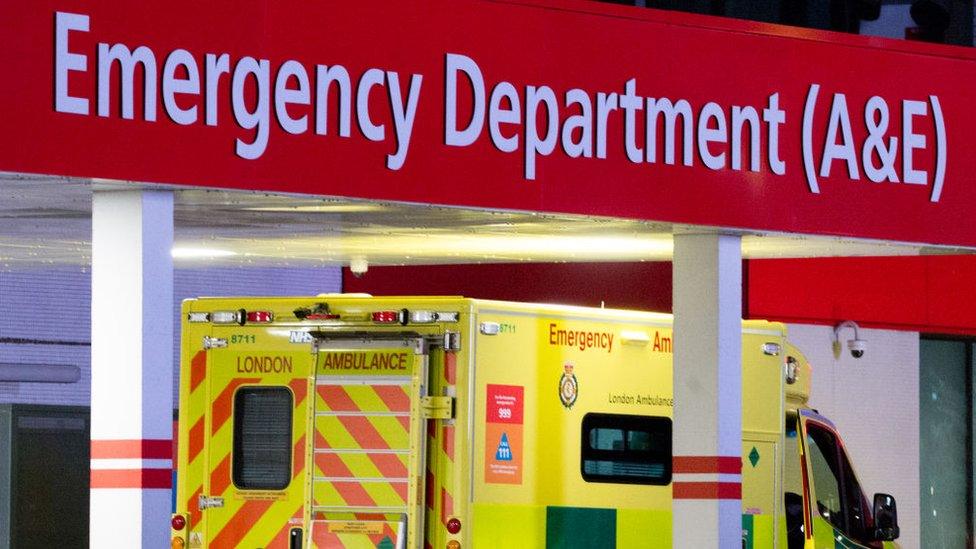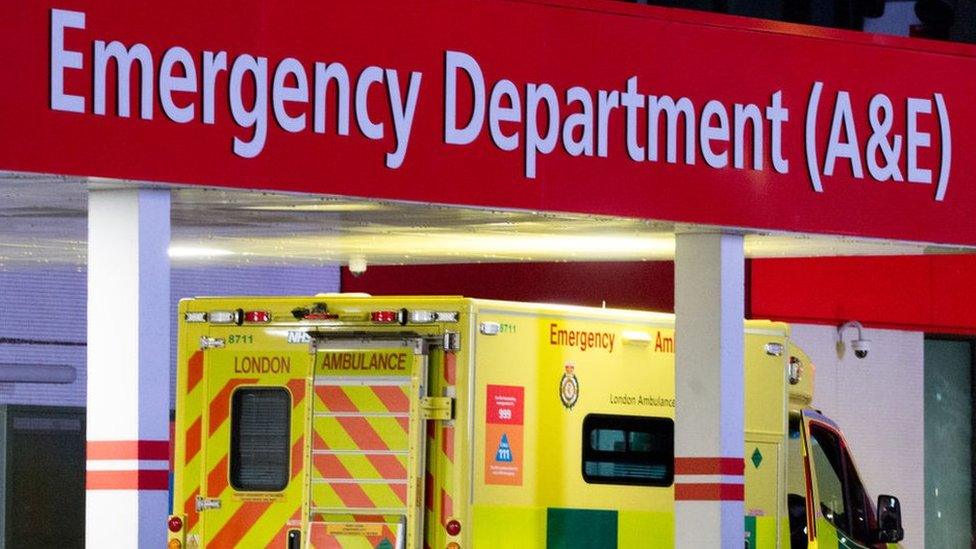Volunteers to use ambulance cars to transport patients to hospital
- Published

The trained volunteers will help those patients who need assistance getting to hospital
Volunteers will transport patients who need extra assistance to hospital to increase ambulance availability for higher-risk patients.
The pilot scheme, using ambulance cars, is due to start in London in May.
London Ambulance Service said the trained volunteers would be sent to lower category 999 calls where the patient needed help to get to hospital.
The service's board meeting was told the scheme would reduce waiting times and increase ambulance availability.
Currently, taxis are used to transport "low acuity patients" to hospital, the meeting heard.
But there were some patients who required "the assistance of one person to walk or mobilise", which taxis could not provide.
"This results in the dispatch of an emergency ambulance, reducing ambulance availability for higher priority incidents and longer waiting times for patients," the meeting heard.
As part of the pilot scheme, a volunteer car would be dispatched to these patients.
'Network of volunteers'
The service said trained volunteers already respond to 999 calls in their own car alongside ambulances.
St John Ambulance and the community first responder scheme have helped to train and assess 22 volunteers.
Cars would operate from New Malden, Deptford, Greenford, Kenton, Edmonton and Ilford, the board meeting was told.
"The project is supported by NHS England and NHS Improvement who are looking to implement a national volunteer transport model based using our model," the service said.
A spokesperson for the service said: "This project builds on our well-established network of volunteers who respond to emergencies to help ensure our ambulances can reach the patients that need us the most.
"These fully trained volunteers, who already respond to 999 calls in their communities, will help patients who have been assessed not to need of an ambulance but who may need more support than a taxi can provide."

Follow BBC London on Facebook, external, Twitter , externaland Instagram, external. Send your story ideas to hellobbclondon@bbc.co.uk, external
Related topics
- Published17 November 2021
